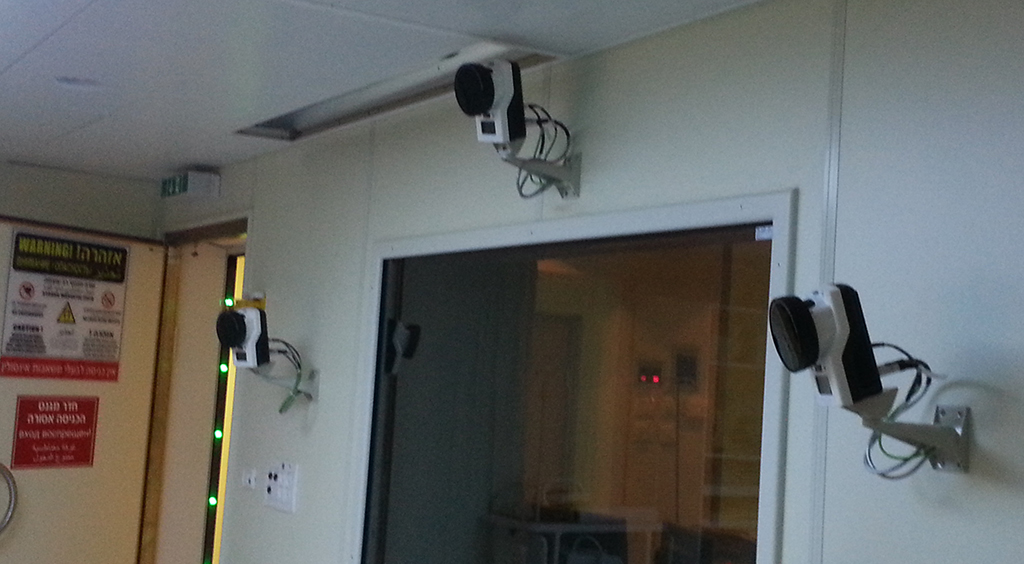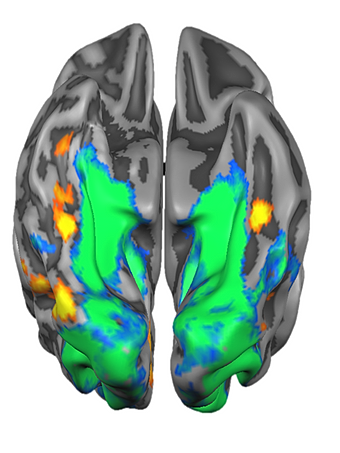Motor control
How do humans learn to master new skills? How do we learn to write a new language or play tennis? Recent research in Dr. Lior Shmuelof’s lab has shown that motor skill learni ng (defined as improvement in task’s execution) is associated with improved feedforward and feedback control processes. Lior is now studying how such control processes develop with an emphasis on revealing their underlying neuronal substrates. For this purpose Lior asks subjects to learn new skills while tracking their movements inside the MRI scanner using a new 3D movement tracking system, which is the first of its kind in Israel. Future work will utilize our understanding of skill learning processes to improve rehabilitation protocols following traumatic brain injury, stroke, and other brain insults.
ng (defined as improvement in task’s execution) is associated with improved feedforward and feedback control processes. Lior is now studying how such control processes develop with an emphasis on revealing their underlying neuronal substrates. For this purpose Lior asks subjects to learn new skills while tracking their movements inside the MRI scanner using a new 3D movement tracking system, which is the first of its kind in Israel. Future work will utilize our understanding of skill learning processes to improve rehabilitation protocols following traumatic brain injury, stroke, and other brain insults.
Related research in Dr. Ilan Dinstein's lab aims to improve our understanding of how the human brain generates our immense motor repertoire. For this purpose Ilan and his group are performing different motor tasks like writing letters and making reaching movements in the MRI scanner while brain responses are being recorded. These studies are revealing the brain mechanisms that allow humans to scale delicate movements, like writing, from small to large amplitudes with such ease. Additional research is now focusing on trial-by-trial motor variability in an attempt to understand why our movements are not always perfectly accurate and revealing potential benefits of motor variability such as faster motor learning capabilities.
Post Traumatic Stress Disorder
Posttraumatic stress disorder (PTSD) is a mental disorder that develops after a traumatic life event and is characterized by re-experiencing, avoidance and hyper-arousal. PTSD patients often suffer from impaired cognitive-emotional dysfunction, but the core neuropsychological processes underlying PTSD have yet to be elucidated, and the link between structural, functional and behavioral deficits remains largely unknown. Current research in Prof. Alon Friedman’s lab is attempting to improve our understanding of brain connectivity alterations and their relation to anatomy and behavior in patients previously exposed to significant stressful life experience.
Disorders of Consciousness
Nonconscious incommunicative patients raise a huge difficulty in the face of clinicians’ attempts to diagnose and treat them. Patients can be classified into those in a vegetative state, those in a minimally conscious state and those suffering from a locked-in syndrome, who are practically conscious but cannot communicate. Despite many efforts, deciding to which category patients belong is still a very hard problem. Moreover, it is even harder to track fluctuations in their condition, identifying improvement or decline in their condition and intervene in these acute moments. There is therefore a critical need to develop and validate novel diagnostic tools to objectively identify the state of a patient with DOC as well as personalized treatments, based on individual diagnosis, to improve brain function. Dr. Moti Salti and Dr. Oren Shriki are currently working on a project to develop a “closed-loop” system that will continuously monitor the state of patients and adjust intervention according to patients’ condition in real-time. This project is done with collaboration of the ICM center at the PITIÉ-SALPÊTRIÈRE hospital, Paris, France.
 High level vision
High level vision
Research in Dr. Galia Avidan's lab focuses on the psychological and neural properties of the human visual system. The work in the lab is designed to elucidate brain mechanisms that give rise to perception of faces, objects and scenes and in turn, to visually guided behavior. In our research we explore how the brain identifies different visual stimuli such as objects and faces while attempting to understand how this visual information is incorporated into subjective, conscious experience. We show subjects images and movies in the scanner while we record their brain responses, physiological responses, and eye movements. We utilize visual object perception as a powerful platform for manipulating conscious visual experience in a controlled manner, which enables us to study directly the relationship between brain mechanisms and subjective experience of perception. We investigate these issues in both healthy individuals and in individuals with specific neuropsychological deficits affecting various aspects of perception such as Prosopagnosia (an inability to identify faces).
Cognition
Research projects in Prof. Avishai Henik's lab encompasses cognitive systems dealing with numerical processing, word processing, attention (spatial and selective), and synesthesia. In all of these areas students are studying the brain-behavior relationship both in healthy and brain-injured populations. To this end, they perform cognitive tests inside the MRI scanner and determine how the brain performs the different computations necessary for healthy cognitive performance.